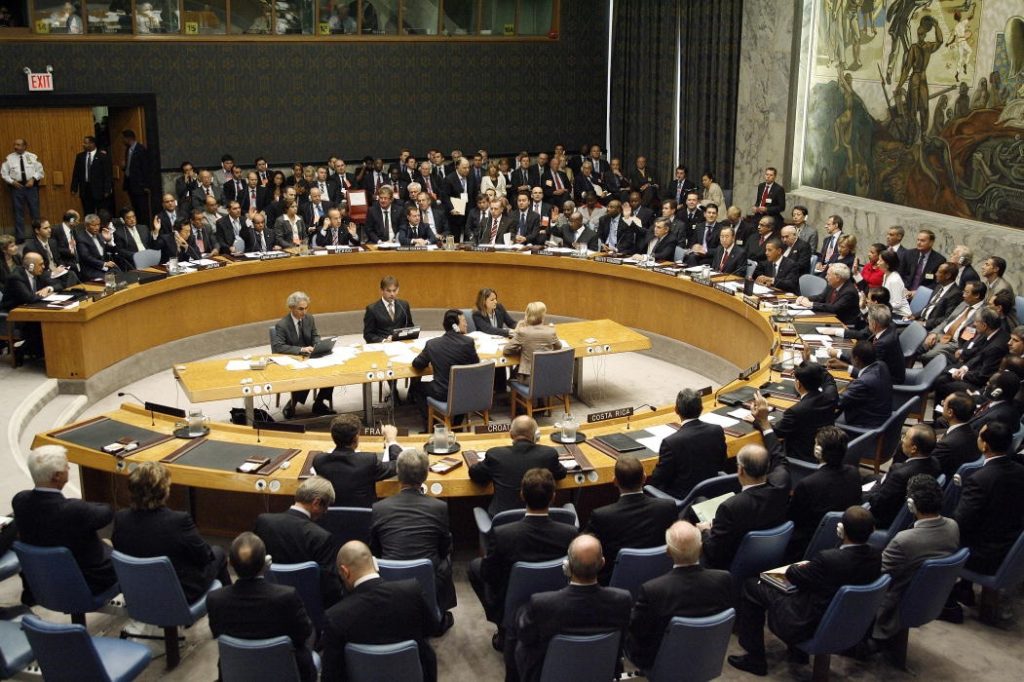The Peninsula
Are the New UN Sanctions Enough to Slow North Korea's Missile Development Program?

By Troy Stangarone
The United Nations Security Council has unanimously passed new sanctions on North Korea in response to Pyongyang’s intercontinental ballistic missile tests on July 4 and 28. These measures are long overdue. While the international community has taken steps to sanction North Korea over its development of nuclear weapons, its push to develop the delivery systems necessary to utilize those weapons has faced relatively few sanctions. That has now begun to change.
The new sanctions take important steps to significantly reduce North Korea’s efforts to earn hard currency. The key provisions in the sanctions relate to a new ban on exports of coal, iron ore, lead, lead ore and seafood products. The ban is a step in the right direction, as it continues to remove loopholes from prior resolutions that North Korea has been exploiting. In the case of coal, for example, North Korea was able to earn more from coal exports after the sanctions than it had prior to sanctions due to rising prices. To address this issue, the UN placed a hard cap on coal exports in Security Council Resolution 2321, passed in November 2016. The cap is now gone and a full ban is in place. These new sanctions also ban new joint ventures with North Korea and any additional investment in joint ventures that already exist.
However, the provision prohibiting an increase in the number of overseas laborers will likely have minimal impact. The trend was already in this direction — over the last year, many countries have been reducing their use of North Korean labor. The one significant outlier had been Russia, who earlier this year agreed to expand its usage of North Korean labor. That the new UN sanctions only place restrictions on increasing the usage of North Korean labor likely reflects the reluctance of Russia and China to cut off the usage of low wage North Korean labor completely. Additionally, much as was the case with earlier efforts to reduce Pyongyang’s earnings from coal exports, North Korea could earn increasing amounts from the laborers already abroad if their wages were to increase.
While the new UN sanctions are an important step to begin imposing a price on North Korea’s missile program, we should not expect the new sanctions to stop North Korea’s missile development. Pyongyang has demonstrated consistently that it is willing to bear the burden of sanctions to advance its weapons programs. Additionally, while some expect that these sanctions will result in a one third reduction of North Korea’s total earnings, the impact may not reach that level, as new sanctions primarily cover goods trade. North Korea likely earns significant amounts from illegal arms trade, smuggling, and other activities as well.
Despite the constraints that come from any new sanctions efforts, this move is an important step forward in sanctioning North Korea over its missile development. Prior to the current set of sanctions, there had been few UN Security Council resolutions explicitly in response to North Korean missile tests, despite a significant increase in tests under Kim Jong-un. So far this year, North Korea has conducted two ICBM tests and has conducted a new missile test once every 2.6 weeks on average. Demonstrating to North Korea that there will be a cost for these tests is important. However, rather than simply reacting to these tests after they occur, the international community should consider pre-negotiating sanctions measures in advance of tests to make clear to North Korea the cost of its actions. At a minimum, the international community should not allow North Korea to continue to conduct new missile tests at this rate without additional sanctions.
Troy Stangarone is the Senior Director for Congressional Affairs and Trade at the Korea Economic Institute of America. The views expressed here are the author’s alone.
Photo from United Nations Photo photostream on flickr Creative Commons.
